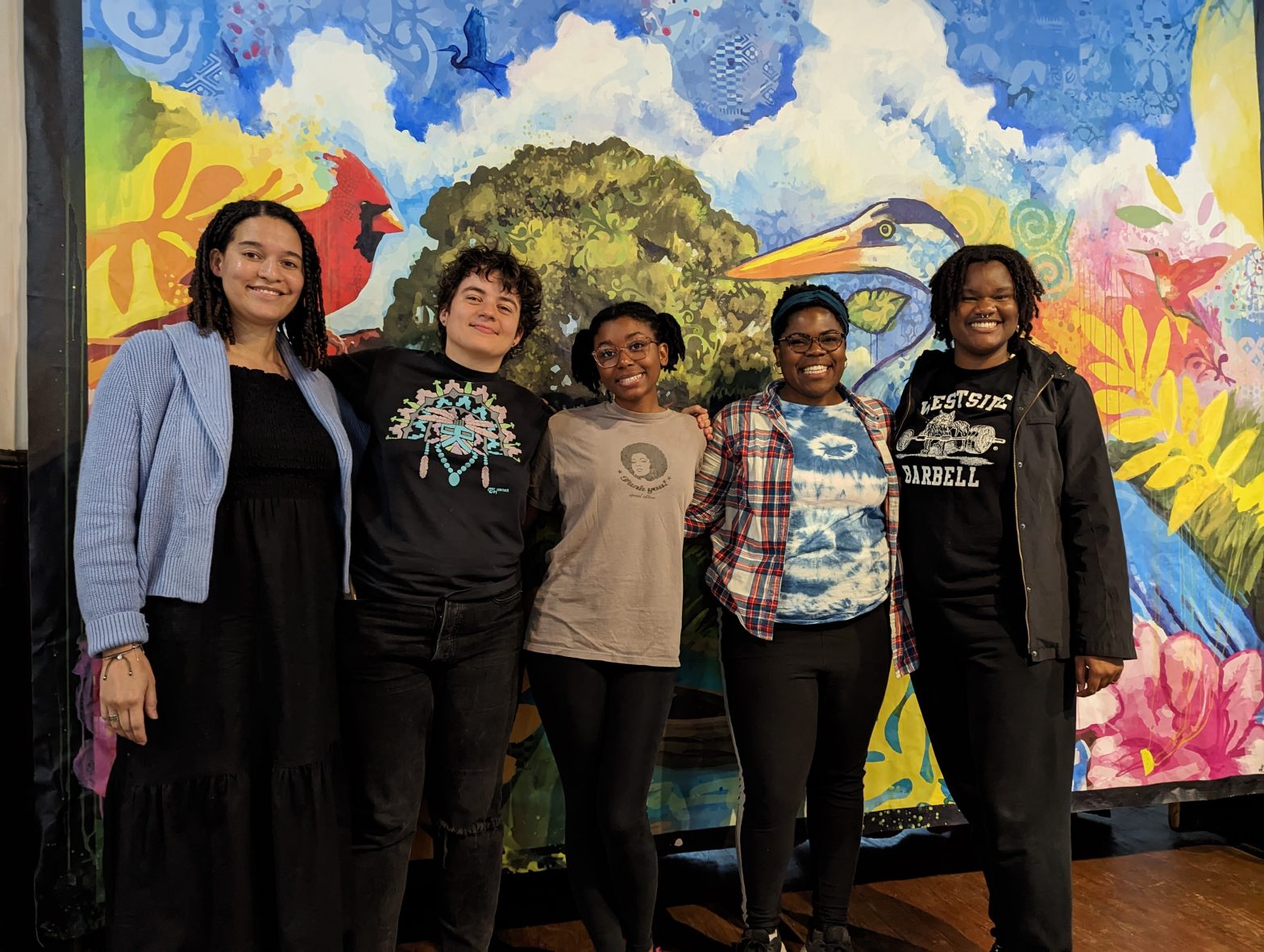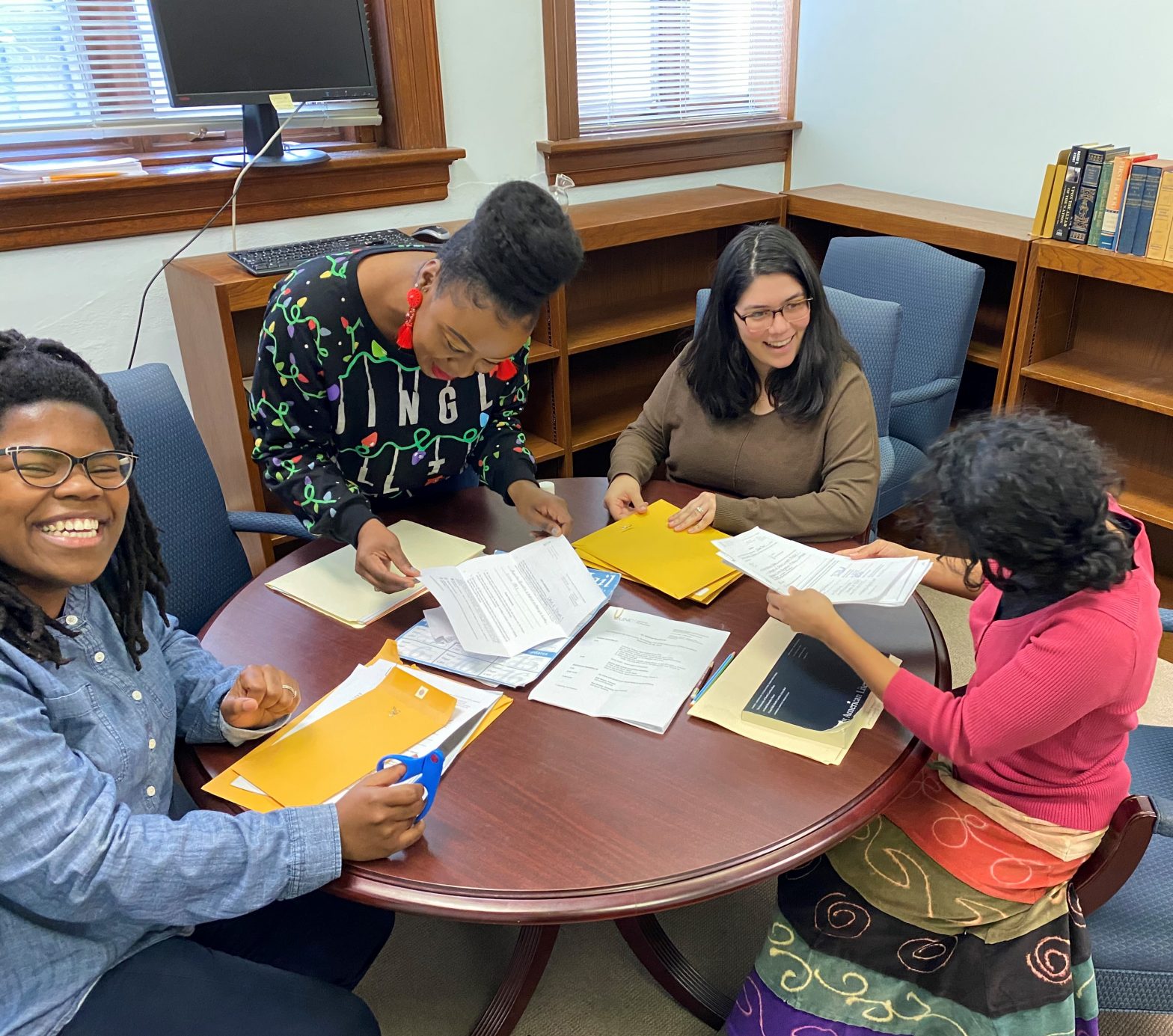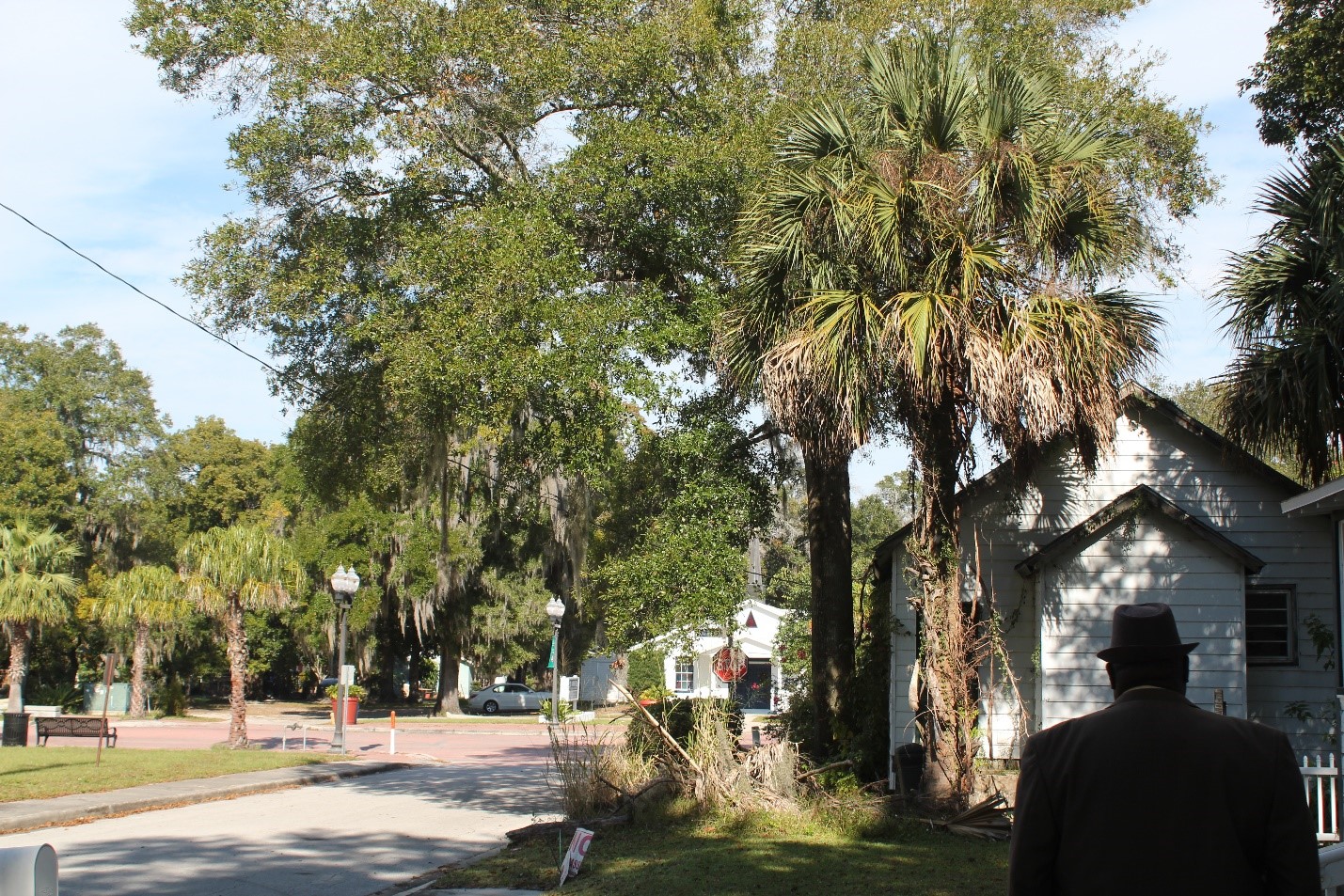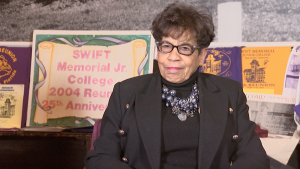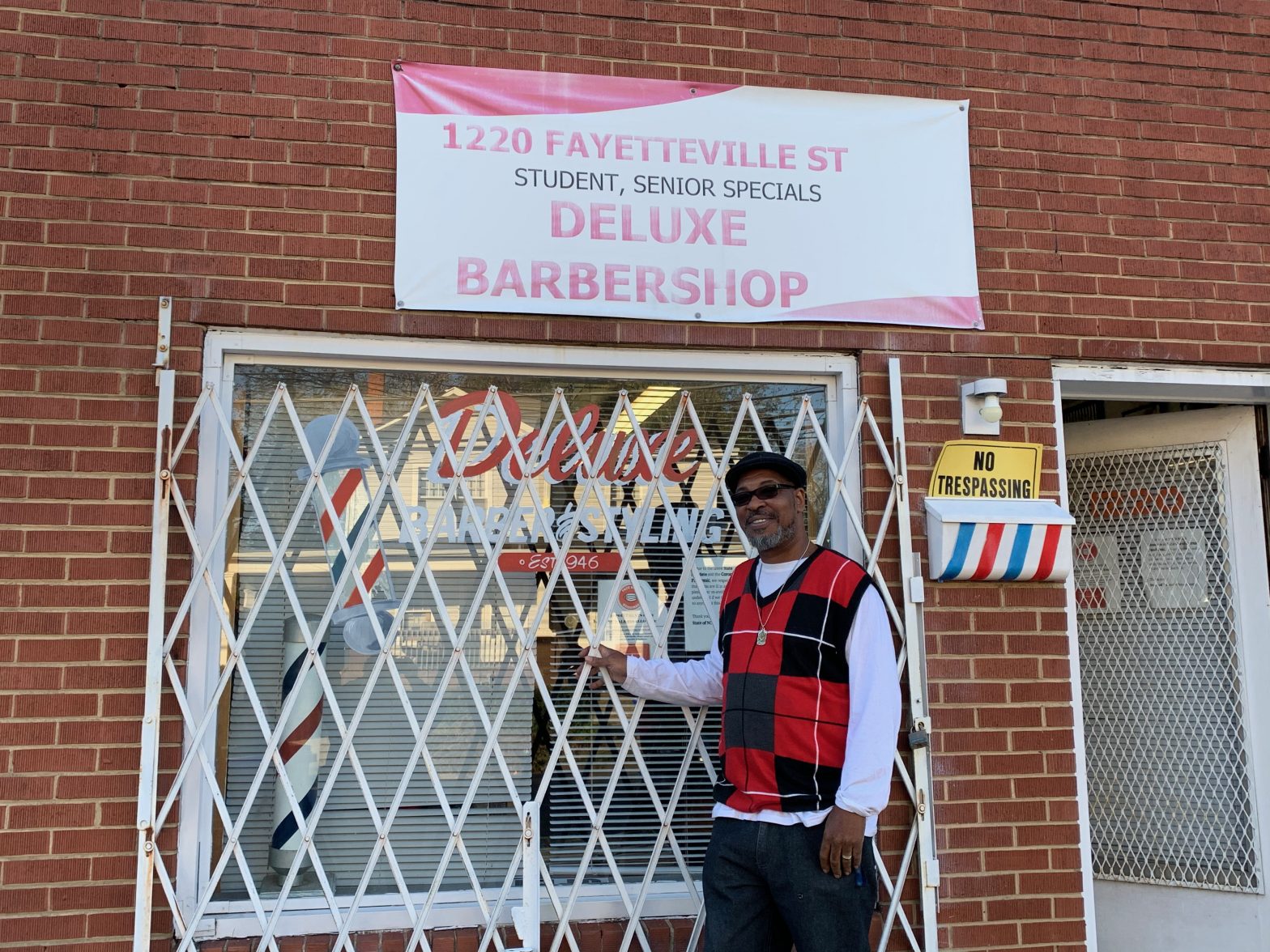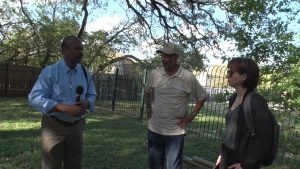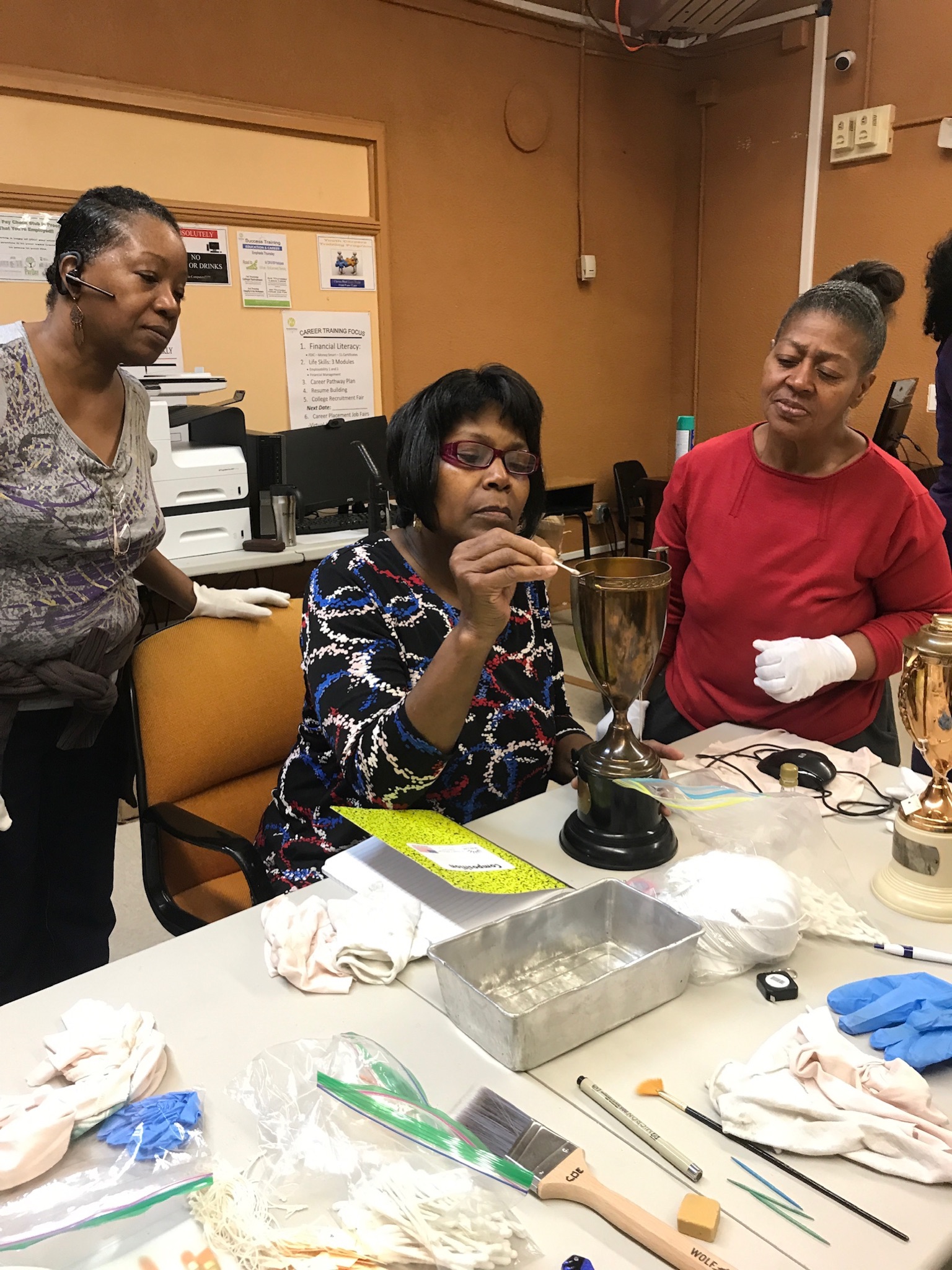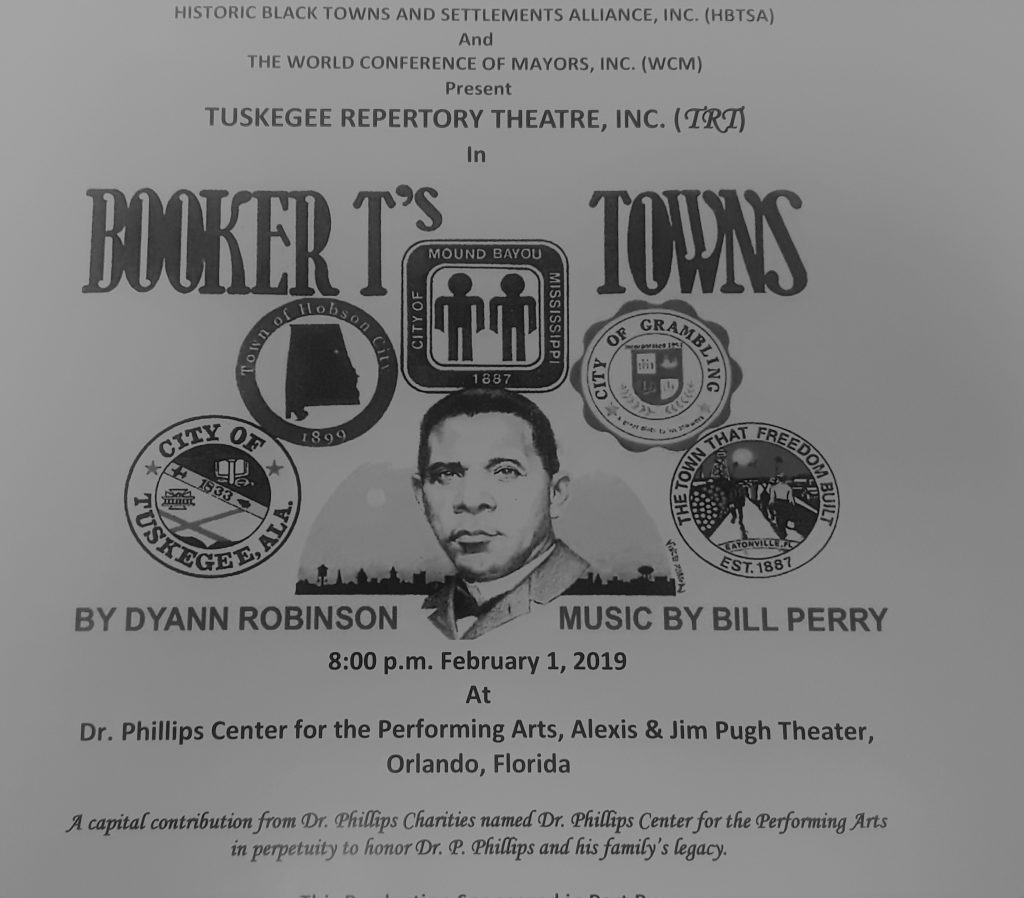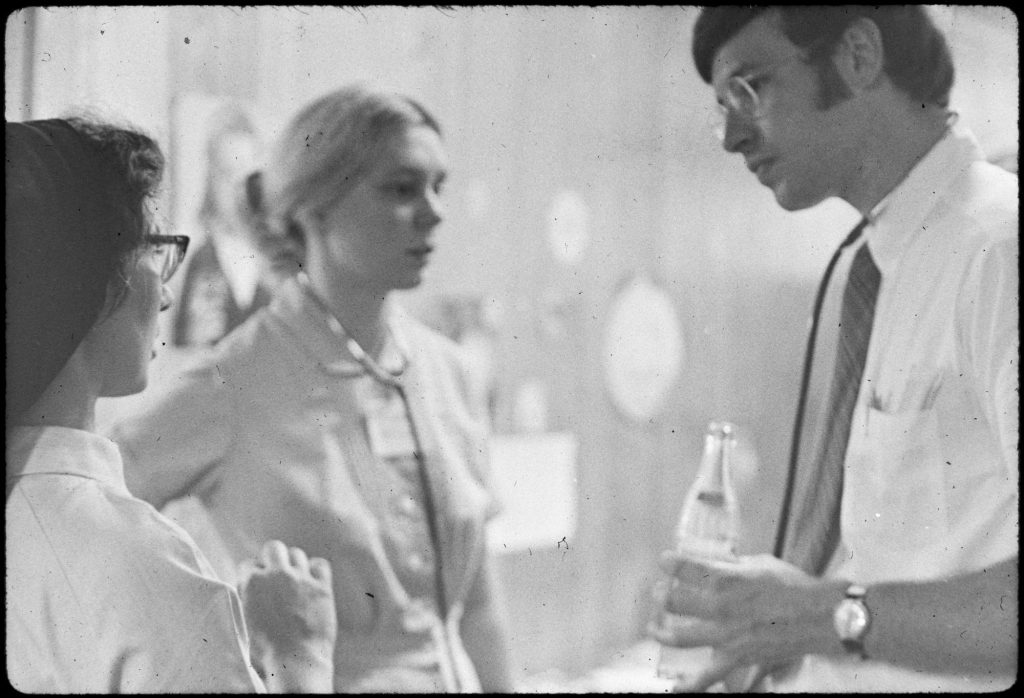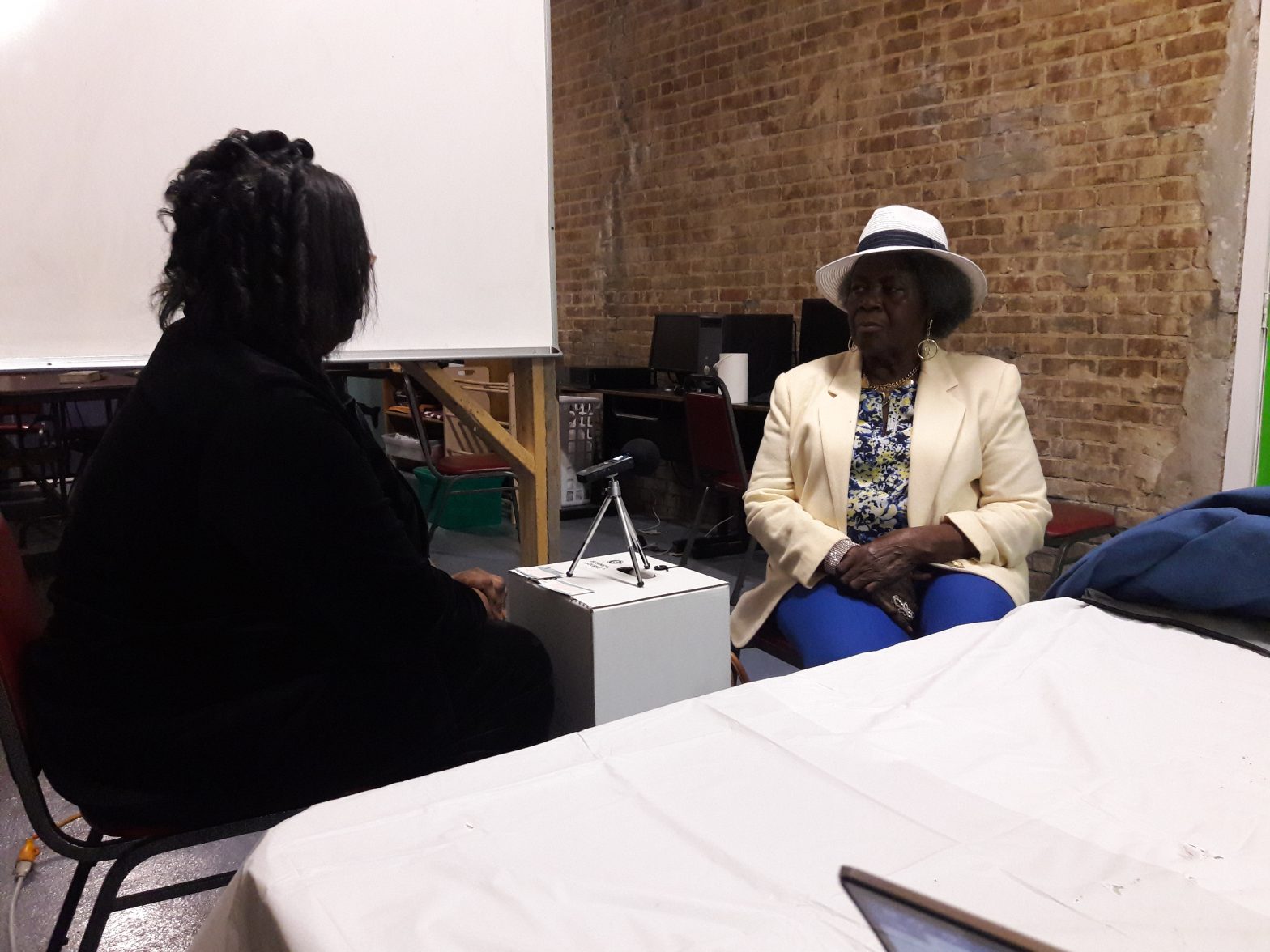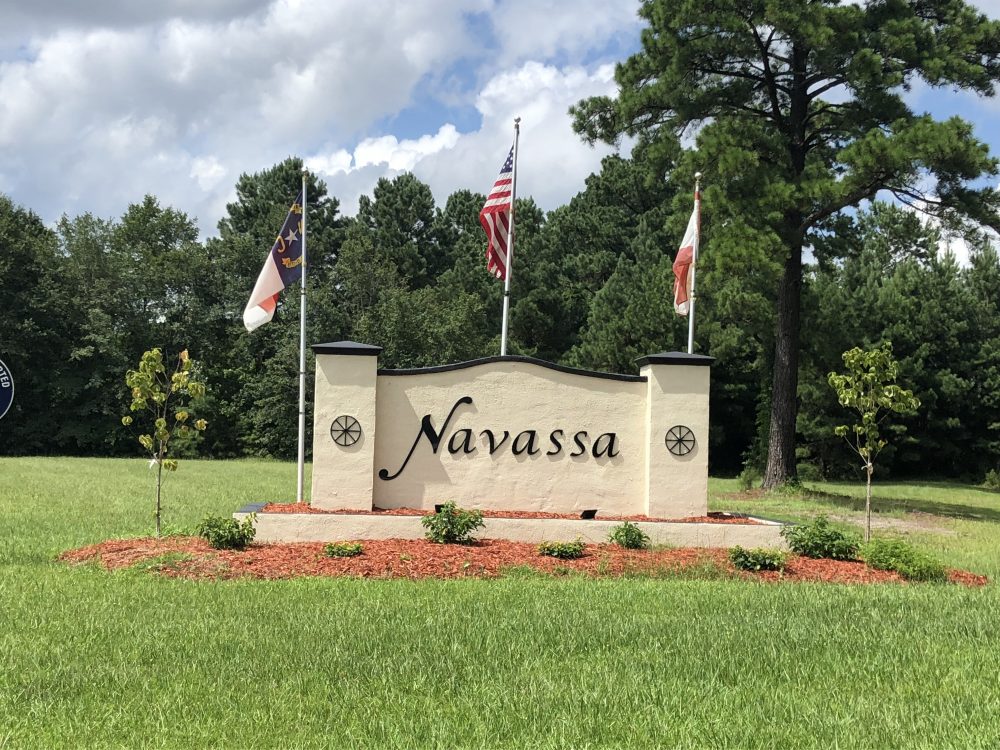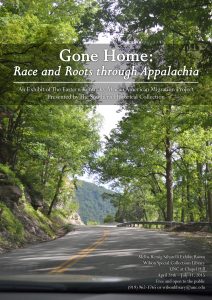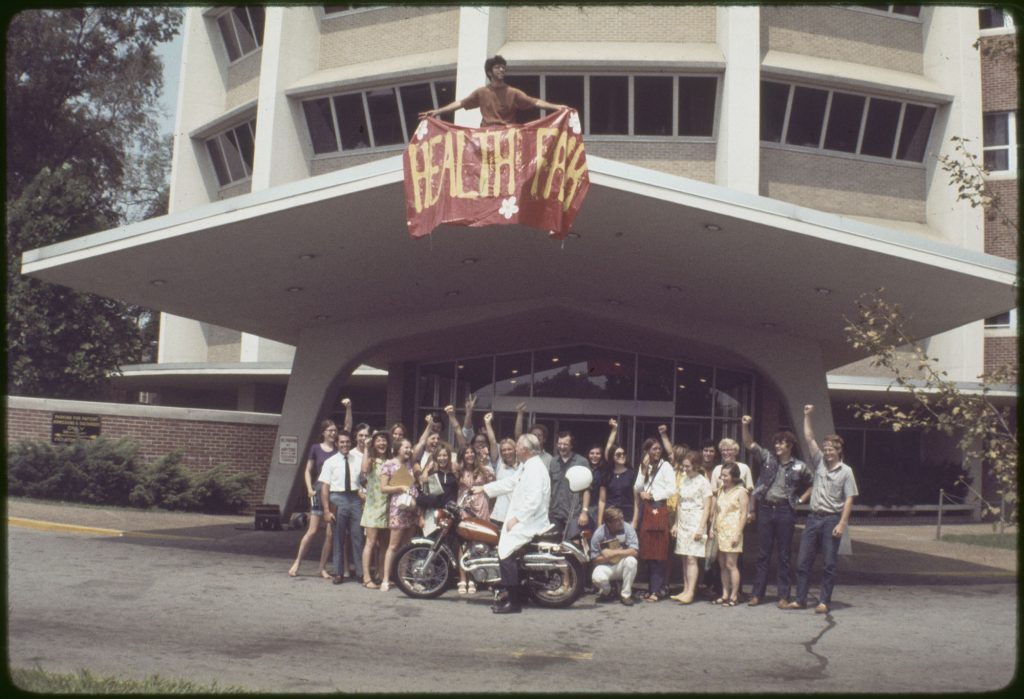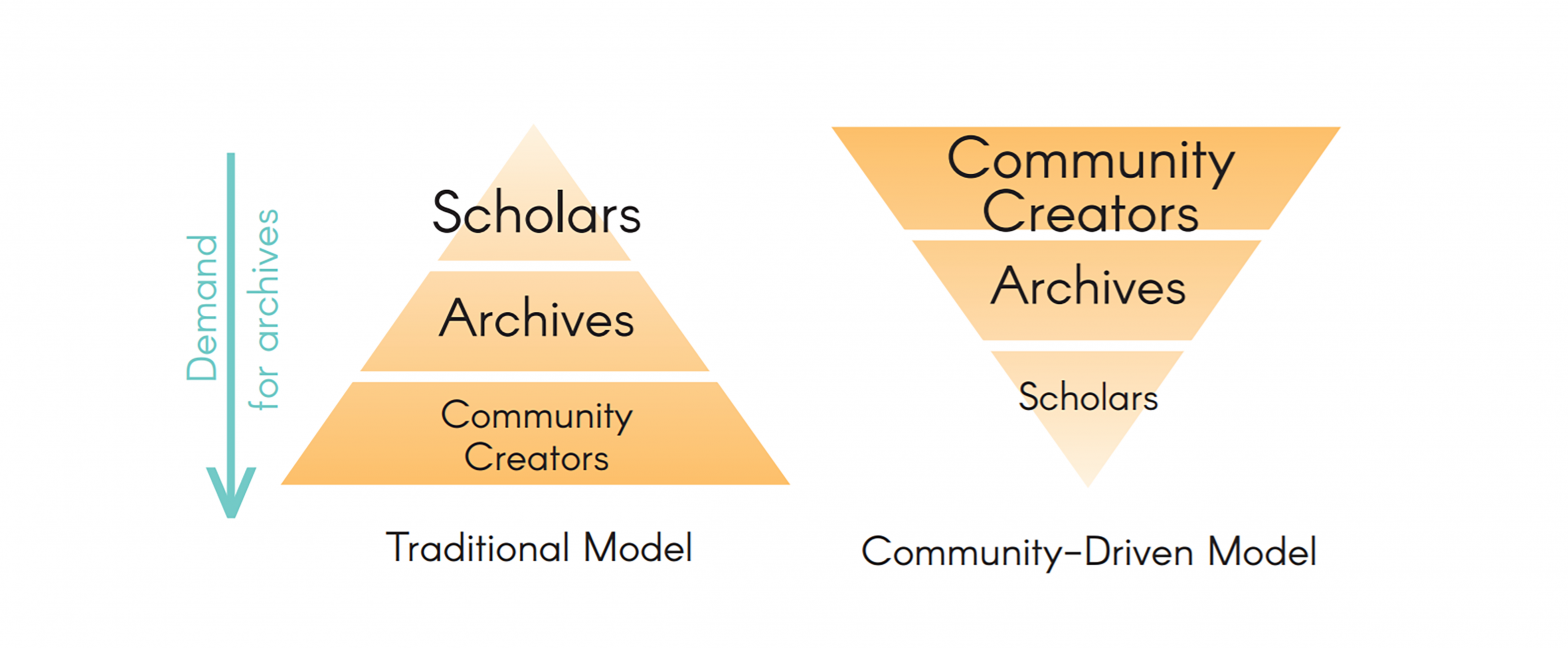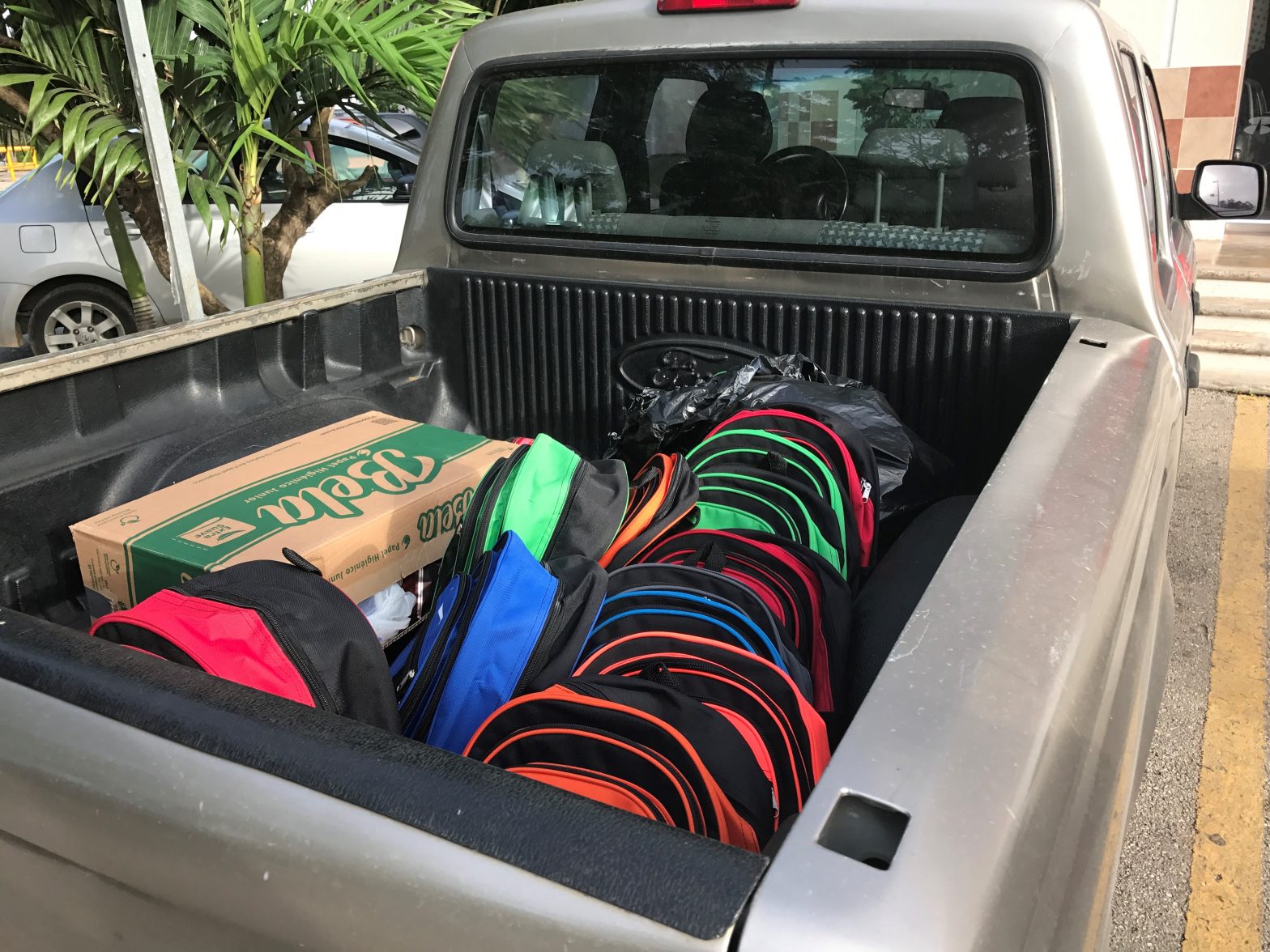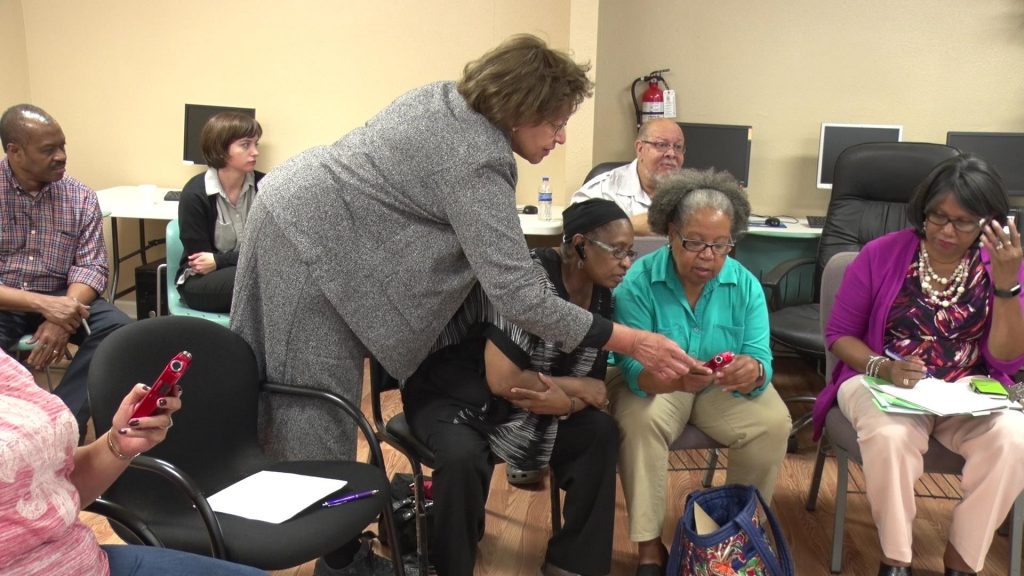How do you introduce students to a place like the Penn Center? This campus on St. Helena Island, South Carolina has transformed over time while retaining the ability to transport visitors to different moments in time: the 1862 founding of Penn School near the end of the Civil War; the 1951 founding of Penn Center… Continue reading Penn Center: A Place, An Archive, A Class
Blog
Reflecting on our Community-Driven Archives Project, 2017-2021
After four years, our Community-Driven Archives team has concluded its work on this Andrew W. Mellon grant-funded initiative. As we come to the end of our journey together, we took the time to reflect on and to be honest about the strengths of this work and the challenges and weaknesses of our project.
Eatonville, Florida: A Vital History
Against all expectation, with the suburbs of Orlando at its doorstep and the interstate visible from the town center, Eatonville has survived the fragmentation common to many small southern towns. If Eatonville retains a small-town atmosphere, it is also mindful of deep history.
Stories from Swift Memorial Institute: A Late-HBCU in Appalachia
In 2012 and 2013, Archival Seedling William Isom, II helped conduct oral history interviews with a number of community members associated with Swift Memorial Institute, a late Historically Black College in Rogersville, Tennessee.
The Negro Motorist Green Book and Community Memory Keepers
Archival Seedling Lisa R. Withers’s project reframes the Green Book travel guide as a publication highlighting social networks, community hubs, and prominent changemakers in African American communities across North Carolina.
Partnering with The San Antonio African American Community Archives and Museum
What is Chapel Hill doing in San Antonio? The SHC’s role at SAAACAM is to share and develop resources and tools that help SAAACAM succeed in its goal of becoming a self-sustaining, self-directed, empowered archive and museum.
All Hands on Deck at Hobson City’s Museum: Interview with Pauline Cunningham
Mayor Alberta McCrory wants to share the remarkable history of Hobson City and other historic Black towns in Alabama at the Hobson City Museum. Through a partnership with the University of North Carolina at Chapel Hill Libraries’ Community Driven Archives (CDA) project, Hobson City Museum hosted a workshop in March 2020 that focused on caring for museum collections.
Budget as Morality in Community-Driven Archives
Our grant project points to the need for critical reflection about institutional resources, and our experiences spur us to devise ways to more directly resource our partners, design grant projects with a bigger focus on equity, and collaborate with our community partners in the development of frameworks to help us measure progress in these areas.
Dyann Robinson and the Tuskegee Repertory Theater, 1991
Dyann Robinson is the heart and soul of the Tuskegee, Alabama theater scene. She founded the Tuskegee Repertory Theater in 1991.
Project Spotlight: Princeville
On September 21st a group of CDA team members and students from the Public History graduate program led by Dr. Charles Johnson at North Carolina Central University drove to Princeville NC to conduct oral histories. We partnered with lifelong citizens, town officials, and longtime residents of the Princeville community to collect stories and workshop the oral history backpacks.
Working from behind the Scenes: The Appalachian Student Health Coalition Archive Project
CDA team member Gillian McCuistion reflects about the relationship between UNC Libraries project archivists and the Appalachian Student Health Coalition: What is our institutional role so that community storytellers and their needs are centered?
Community-based, in a Digital Space
Due to the COVID-19 pandemic, the change of medium from in-person to digital presented an unexpected opportunity to stretch our expectations of technology and start rethinking how we can use it to create embodied and relational experiences online.
So What’s a CDAT Anyway? Meet the Community-Driven Archives Team at the Southern Historical Collection
Meet past team CDAT members: In October 2017, the Southern Historical Collection celebrated the complete staffing of our “Building A Model For All Users: Transforming Archive Collections Through Community-Driven Archives” Andrew W. Mellon Foundation grant team.
On the Road: The Community-Driven Archives team travels to Shaw, Mississippi, February 2019
CDA team members spent the last weekend of February traveling to Shaw, MS to conduct an Archivist in a Backpack Training and archival techniques workshop. They collaborated with a group working to preserve and share the history of the town of Shaw, specifically the civil rights case Hawkins vs. Town of Shaw.
Archival Seedlings: Resourcing Local Collaborators Across the American South
Archival Seedlings was a 15-month program supporting the development of small community archives projects led by individual history keepers across the South.
Archival Seedlings: Putting Our Values into Practice, the 2020 Edition
Here are some ways our collaboration with Seedlings participants got creative in 2020 to resource local history initiatives with the support of our grant funds.
Getting to know Navassa, a historically Black community in Brunswick County, North Carolina
Navassa, NC is one of the towns in our Historic Black Towns and Settlements Alliance (HBTSA) grant partnership. University Libraries at UNC-Chapel Hill has several interesting collections that encompass the history of this small town.
Fighting for clean land, energy, and industry since 1974, a story of the East Tennessee Research Corporation
Around 1973, the Appalachian Student Health Coalition (ASHC) recognized that groups working in the east Tennessee area needed additional legal services not initally provided by ASHC. Thus, in the ASHC’s spirit of “comforting the afflicted and afflicting the comforted” the East Tennessee Research Corporation (ETRC) was born in 1974.
Presenting “Gone Home: Race and Roots through Appalachia”
From 2017-19, the Community-Driven Archives (CDA) grant team and the Southern Historical Collection collaborated with Dr. Karida Brown while she was a Ph.D. candidate at Brown University, along with many Appalachian families on the Eastern Kentucky African American Migration Project (EKAAMP).
Announcing the Launch of the Student Health Coalition Project Website
Introducing a pioneering online archive about student activism in the 1960s and 70s, a digital home for video clips, historic photos, and personal profiles from former activists in the rural South with a focus on health care.
What is a Community Archive?
Community archives and other community-centric history, heritage, and memory projects work to empower communities to tell, protect, and share their history on their terms.
What’s with all the Backpacks?
One of the central initiatives for the CDA Team is a transportable archiving kit that demystifies the technical jargon and supplies resources for communities.
Why are Oral Histories Important for Community-Driven Archives?
From the beginning, the Community-Driven Archives Team has prioritized oral history training and the collection of oral histories as a key part of our work.

